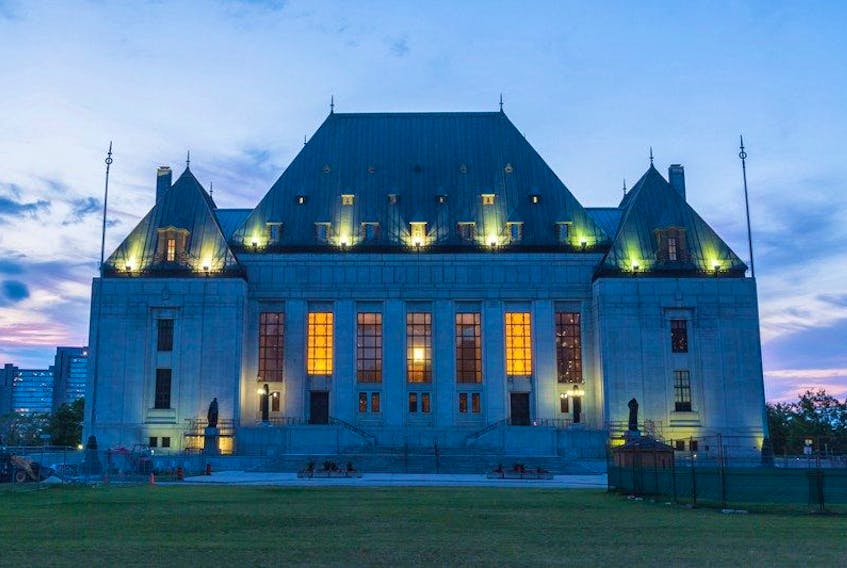I’m not a lawyer. That’s pretty obvious.
But I read legal decisions, follow cases through the courts, and watch an ever-growing movement that’s seeing corporations, unions and governments gain ever-more prominence in court cases across this country. The higher the court, the higher the costs — and the higher the court (with the exception of criminal cases), the more likely one or both of the litigants is a corporate body of one form or another.
And I can’t help but think that the growing imbalance involved runs back to the curious decision to consider corporations to be “persons.”
It’s worse in the United States, where an 1886 Supreme Court decision on railway freight rates was decided using the 14th Amendment of the U.S. Constitution, arguing that having a public agency involved in freight rates constituted the government improperly moving to “deprive any person of life, liberty, or property, without due process of law.”
But in Canada, as well, corporations who’ve seen their advertising rights limited — like the cigarette industry — have challenged laws by arguing their Charter of Rights guaranteed freedom of expression has been affected. (The Supreme Court in Canada made an end-run around that issue by ruling that rights can be limited for a demonstrable public good.)
In some facets of corporate law, the Supreme Court of Canada has ruled that corporations do not have all the rights conferred on individuals — in a case brought by Irwin Toy about a ban on advertising directed at children, the court did rule that Irwin Toy’s rights to freedom of expression were affected — but said the laws were justifiable.
The same judgement did find that corporations weren’t fully “persons” when it came to the Section 7 of the Charter of Rights, ruling: “Read as a whole, it appears to us that this section was intended to confer protection on a singularly human level. A plain, common sense reading of the phrase ‘Everyone has the right to life, liberty and security of the person’ serves to underline the human element involved; only human beings can enjoy these rights. ‘Everyone’ then, must be read in light of the rest of the section and defined to exclude corporations and other artificial entities incapable of enjoying life, liberty or security of the person, and include only human beings.”
I realize that suggesting that further diminishment of the rights of companies and corporations is kicking at the cornerstone of corporate law. But change is clearly due.
If a person makes a decision to take some kind of action, they’re on the hook, both criminally and financially, should the courts find their actions to be improper.
If a corporation does, the corporation is on the hook, but the person who actually made the decision generally isn’t. With deep corporate pockets, cases can go on and on until any individuals fighting a corporation are both physically and financially exhausted. Companies operate with limited liability — its individual shareholders aren’t liable for corporate decisions. Why shouldn’t companies have clearly limited rights to go along with their limited liabilities?
After all, the Supreme Court’s chief justice wrote in one decision, “In interpreting and applying the Charter I believe that the courts must be cautious to ensure that it does not simply become an instrument of better situated individuals to roll back legislation which has as its object the improvement of the condition of less advantaged persons.”
There isn’t a level playing field in civil court now.
It’s like putting a heavyweight and a featherweight in the same ring, and arguing that the fight’s fair because they’re both boxers.
Russell Wangersky’s column appears in 39 SaltWire newspapers and websites in Atlantic Canada. He can be reached at [email protected] — Twitter: @wangersky.









